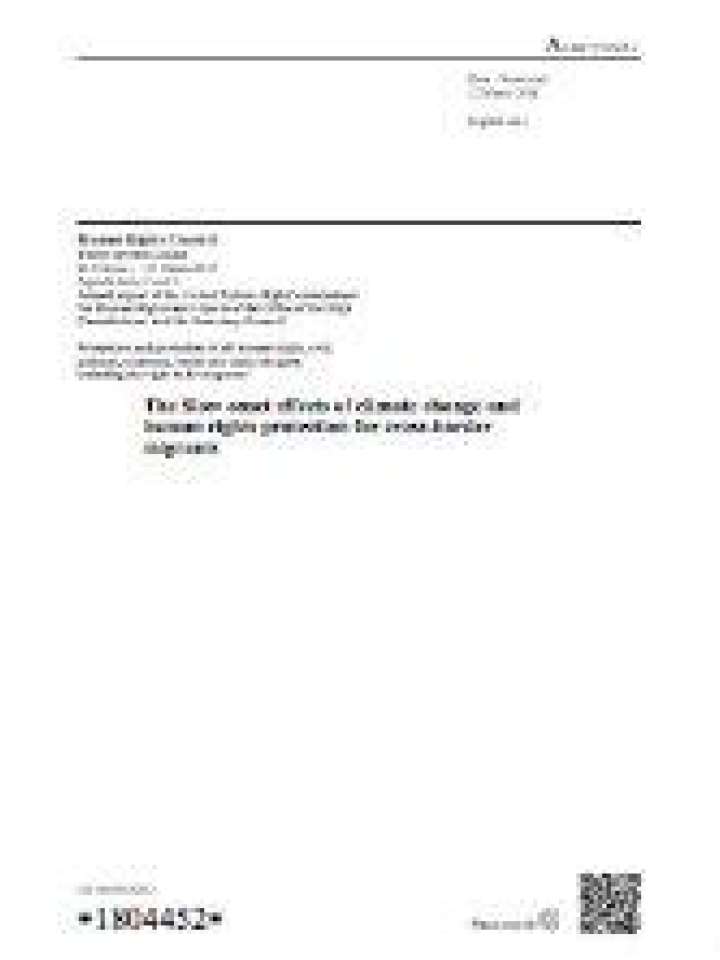The slow onset effects of climate change and human rights protection for cross-border migrants
This paper seeks to advance understanding of the connection between the slow onset adverse effects of climate change, human rights, and the cross-border movement of people in order to promote informed actions to protect the rights of those affected. The study was undertaken on behalf of the Office of the United Nations High Commissioner for Human Rights (OHCHR), in collaboration with the Platform on Disaster Displacement (PDD).
Section I introduces the links between climate change, human rights, and human mobility. Section II discusses the implications slow onset events have for the human rights of affected persons. Section III analyses the international legal landscape for cross-border movement, discussing both gaps in legal protection and potential sources of state obligations. The challenge such movement poses are highlighted in Section IV through four case studies that reflect the complex interaction of context, vulnerability, and prior patterns of movement. Section V then discusses means to provide protection for those who move in the context of slow onset events, through legal obligations and policy responses. Finally, the study concludes by discussing current international and regional mechanisms that offer ways to work on climate change, human mobility, and human rights. It calls for further clarification and recognition of the relationship between these factors and highlights the opportunity to plan and prepare for events and impacts.
Explore further
